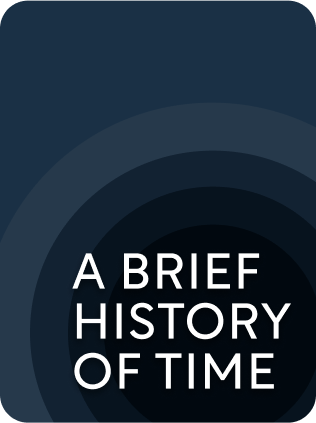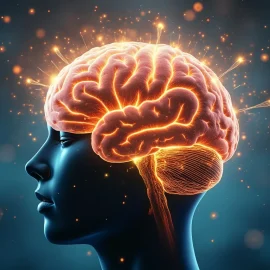

This article is an excerpt from the Shortform book guide to "A Brief History of Time" by Stephen Hawking. Shortform has the world's best summaries and analyses of books you should be reading.
Like this article? Sign up for a free trial here .
Do you want to write a sci-fi story but don’t know where to start? Is it important to you to include real science in your fiction?
In A Brief History of Time, Stephen Hawking explains modern physics to a general audience. These ideas provide excellent jumping-off points for science fiction stories.
Keep reading for five Hawking-inspired sci-fi writing prompts that will help you use real science in science fiction.
5 Sci-Fi Writing Prompts
Science describes and predicts how the universe works, so it has profound implications for philosophy and everyday life. Science also makes for excellent story material. If you’re looking for some sci-fi writing prompts—and it’s important to you to use real science in science fiction—you’ll enjoy these prompts inspired by Stephen Hawking’s A Brief History of Time. In his book, Hawking describes the principles of modern physics for a general audience to make the discoveries and implications of modern science more accessible to everyone.
These sci-fi writing prompts can be used individually to write several sci-fi stories, or they can be used together to write a full novel or series. Some prompts include exercises that will help you think through the concepts and turn them into story elements.
Prompt 1
Season 1 of the series is about people leaving Earth and traveling to a distant planet to build a new colony. They’ll make the trip on spaceships that travel very close to the speed of light. Brainstorm a few ideas for interpersonal drama or other plot elements that could arise from the relativity of space, time, or motion, as people travel to the new colony. (For example, because the ships are traveling close to the speed of light, the people on board will age much slower than their loved ones back home, which could cause problems.)
Prompt 2
Season 2 of the series centers around a computer-genius character who claims to have developed a mathematical model of the colony so detailed that his computer program can predict the future. Considering quantum uncertainty and the challenges of unifying quantum mechanics with general relativity, brainstorm a few ideas for episodes or plot twists that the writers could use in Season 2.
Exercise: Analyze an Unpredicted Event
Scientific theories allow you to predict the future, given enough information about the present. However, this predictive power is limited in two ways: There’s currently no theory that can model everything, and quantum uncertainty limits how much you can know about the present. This exercise will help you put these principles into action in your story.
- Think about the last time you experienced something unexpected. Briefly describe what happened.
- Did it change your mental model of how the universe works? In other words, did it change the way you think about the world or how you expect the future to unfold? Why or why not?
- Why was it unexpected? What information would you have needed to predict it in advance?
- In hindsight, would you say the event was “deterministic,” or bound to happen, given the causes that led up to it, or could it just as easily have turned out differently? Why?
Prompt 3
In Season 3 of the series, a red giant star about five light-years away from the colony collapses into a black hole and the colonists send a scientific expedition to study the black hole. The writers want to cover the drama on the expedition and back on the colony while the expedition is underway. Brainstorm a few ideas for episodes or plot elements to use in Season 3.
Prompt 4
Season 4 of the series focuses on time travel. However, before the writers can flesh out the episodes, they need to agree on how time travel works in their series. What mechanism of time travel would you advise them to use? (For example, maybe the colonists find a way to manipulate the gravity of the black hole that formed in the previous season such that they can create a wormhole, and they try to create a wormhole back to Earth for ease of future communications. Maybe they succeed in creating the wormhole, but the other end forms in the Bermuda Triangle in the 1800s, or some other historical time period, and the wormhole collapses as soon as they send a team through it, so they can’t immediately get back.)
Exercise: Consider Your Approach to Time Travel
Hawking views time travel (at least backward or arbitrary time travel) as unlikely, but he discusses how quantum particles can travel back in time and how wormholes could connect two different points in spacetime that might be located in different time periods. This exercise will help you put these ideas into action in your story.
- As technology progresses, do you think developing time travel is technically feasible? Why or why not?
- Assuming it’s technically possible to develop time travel technology, do you think humans should invest resources in developing it? Why or why not?
- Suppose a company succeeded in creating a wormhole that takes you one week backward (or forwards, if you prefer) in time. They’ve demonstrated that traversing the wormhole is reasonably safe, and the cost of a ticket to last week costs about a week’s wages. Would you ever use this technology? If so, what would you use it for? If not, why not?
- Now imagine that today you accidentally fall into a temporary wormhole created by a glitch in the one-week-wormhole device, and you suddenly find yourself transported one week backward in time. As soon as you arrive, the wormhole implodes, so you can’t go back through it. Now that you’re compelled to relive last week, what would you do differently?
Prompt 5
Given your answer to the previous question, brainstorm a couple of ideas for episode plots or plot twists to use in Season 4. Consider introducing a problem that ultimately leads to an exciting discovery.
Exercise: Turn Problems Into Solutions
In science, new discoveries often overturn prior theories, and problems with current theories sometimes lead to new discoveries. (For example, Arno Penzias and Robert Wilson thought there was a problem with their microwave antenna but eventually figured out that they had discovered the cosmic microwave background.) This exercise will help you translate this concept into action in your story.
- Briefly describe a problem or apparent contradiction that you’ve recently encountered. (For example, maybe your coworker says she emailed you an important document last week, but it never showed up in your inbox. Or maybe your houseplants suddenly start turning yellow or showing other signs of stress.)
- Scientists often resolve problems by developing an improved theory, and the first step of developing a new theory is to formulate a hypothesis. List two or three hypothetical solutions to your problem.
- How would you test each hypothesis you listed? That is, how will you evaluate each one to see if it would resolve the problem?

———End of Preview———
Like what you just read? Read the rest of the world's best book summary and analysis of Stephen Hawking's "A Brief History of Time" at Shortform .
Here's what you'll find in our full A Brief History of Time summary :
- The search for a theory that explains the history and evolution of our universe
- Stephen Hawking's discussions about time, space, dimensions, and quantum theory
- How time travel would theoretically work






